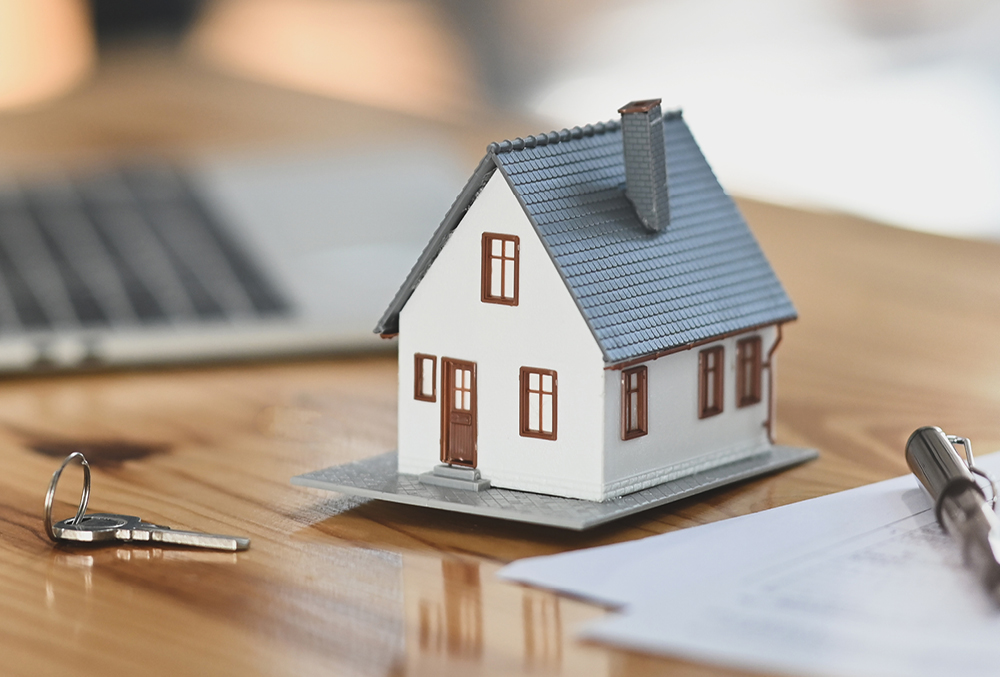Thinking of investing in a rental property? There are several benefits that come with purchasing a rental, but a number of responsibilities and potential challenges too. Understanding your role, your risks, and the market can help set you up for success.
Buying a rental property is a popular move among Canadians looking to earn extra income. Not only can you generate ongoing cash flow from rent, the property’s potential to increase in value over time can boost your net worth and diversify your assets. While it’s a move that can be lucrative, it’s one that should be carefully considered and researched before diving in.
Here are three steps worth taking before becoming a rental property owner.
1. Research the rental market
Understanding the housing and rental market in the area that interests you is an important early step. While big cities such as Toronto and Vancouver have high rental populations to support the rental market, properties tend to be expensive and could prove to be out of reach. There are many other areas in Canada that have great rental potential that may be better suited to a first-time landlord.
Here are some questions to consider as you choose a location:
 |
Is the property close to home? For those times when you need to make a repair or deal with a tenant issue, you’ll appreciate a location that’s easy to get to. |
 |
Is the economy in that area strong? A city’s unemployment rate can give you some insight into both the present market conditions and future outlook. |
 |
Is there potential for job growth in the area? For example, are there plans for a new factory, warehouse, or head office that may draw more people to the area – and therefore increase the rental demand? |
 |
Is the area close to a college or university? If so, the demand for rental housing is likely to remain strong, regardless of the economy. |
As you consider these location factors, be sure to research both the average rent prices and average sale prices to determine what your return on investment may be. It’s also wise to understand the property tax rate in the municipality you’re considering – if it’s a thriving or growing area, taxes may be high, or rising. You can check with the municipal assessment office for more information.
Finally, you’ll want to research the laws and bylaws with respect to rental properties to ensure your plans are feasible – and that you won’t run into any surprises down the road.
2. Determine your mortgage needs
The type of mortgage that’s right for your rental property purchase depends on a few things, including the number of units within the property and whether or not you’ll be occupying one of them. For instance:
- If you plan on renting out all of the units of the property, you will be required to make a down payment of at least 20% of the purchase price.
- If you plan on living in one of the units, you may be approved for a lesser down payment – similar to if you were purchasing a residential property for yourself.
- If the property has more than five units, it is considered a commercial property and will require a commercial mortgage.
Many lenders offer special programs to help buyers purchase investment properties. Learn more about MCAP’s Small Rental Program to see if it’s right for you.
3. Understand if you’re cut out to be a landlord
Being a landlord can be a good way to earn real estate income – but it’s not necessarily passive work. There are a number of responsibilities that come with the job, including:
|
|
Finding reliable tenants and taking the time to verify income, conduct background and reference checks, and determine their credit history. |
|
|
Collecting rent as some tenants may be late to pay their rent and may require some following up with them. |
|
|
Maintaining the property, which can include emergency repairs or issues management at any time of the day or night. |
|
|
Being well-versed in lease/rental contracts, eviction rules, and the rights and responsibilities of both landlords and tenants. |
As well, you’ll need to ensure you have sufficient savings to cover the cost of your property when it’s not being rented. Being prepared and comfortable with the financial risks involved are essential qualities of a landlord.
Purchasing a rental property can be a great investment for the future and provide extra cash flow today. If you’re considering it, be sure to go into the purchase equipped with the information, skills, and resources you need for a smooth experience.
Ready to buy a rental property?
Visit MCAP’s Small Rental Program page for more information.




